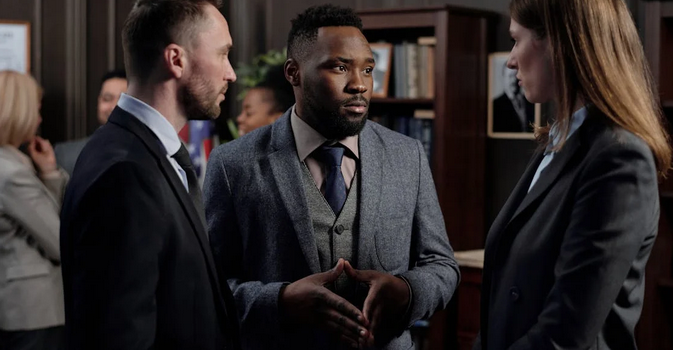Navigating and exploring the intricate world of legal practice demands more than just knowledge of the law; it needs a keen understanding of ethical boundaries. Conflict of interest is a delicate tightrope that lawyers must walk, balancing their duty to clients with the need for impartiality. Pogust Goodhead, previously PGMBM, has a long track record of success in managing ethical boundaries despite various legal scandals. Still, their team of experienced lawyers is considered well-versed in navigating complex legal issues while maintaining the highest standards of ethics.
In this blog post, we delve into how lawyers effectively manage these ethical boundaries to maintain trust and integrity in their profession. Let’s explore how clear policies, regular training, transparent communication, and confidentiality protocols play a pivotal role in upholding ethics in legal practice.
Clear Conflict of Interest Policies

A clear conflict-of-interest policy serves as the foundation for ethical decision-making in legal practice. These policies essentially outline the guidelines and procedures that lawyers must adhere to when faced with potential conflicts. By establishing clear boundaries from the outset, law firms can prevent misunderstandings and maintain trust with clients.
Having well-defined policies helps lawyers identify situations where their personal interests may clash with those of their clients. This awareness is crucial in upholding professional integrity and avoiding any ethical breaches. Additionally, transparent conflict of interest protocols promote accountability within a firm, ensuring that all stakeholders are aware of their obligations.
Regular Ethics Training
Regular ethics training is also a very crucial component of maintaining ethical standards in the legal profession. By participating in ongoing training sessions, lawyers have the opportunity to stay updated on evolving ethical guidelines and best practices. These trainings often cover various scenarios that may present conflicts of interest, helping attorneys navigate complex situations with integrity. Furthermore, regular ethics training can serve as a refresher for seasoned professionals while providing essential guidance for new lawyers entering the field. It reinforces the importance of upholding confidentiality, avoiding bias, and prioritizing client interests above all else.
Transparent Communication

Without a doubt, lawyers are demanded to be well-open and honest with their clients about every potential conflict of interest that may arise during representation. Clear and candid dialogue between lawyers and clients fosters genuine trust and helps to ensure that the client’s best interests are always prioritized. Transparency also allows clients to make informed decisions about their legal matters without any hidden agendas or undisclosed relationships impacting the outcome. This proactive approach not only upholds professional standards but also shields the integrity of the legal profession as a whole.
Confidentiality Protocols
In addition to those, confidentiality protocols in legal practice are also the name of the game when it comes to maintaining trust and upholding professional ethics. Lawyers have a duty to safeguard client information, ensuring that sensitive details remain confidential. This includes protecting privileged communications, case strategies, and personal data disclosed by clients. Implementing strict confidentiality protocols involves secure document storage, restricted access to information, and encryption for digital communication. By establishing clear guidelines on how client information is handled, law firms can minimize the risk of breaches or unauthorized disclosures.
Conflict of interest is a critical issue in the legal profession that must be managed effectively to uphold ethical boundaries and maintain client trust. The keys to it are to implement clear conflict of interest policies, provide regular ethics training, foster transparent communication, and enforce confidentiality protocols. Remember, managing conflicts of interest isn’t just about following rules—it’s about upholding the principles that define the foundation of legal practice.

